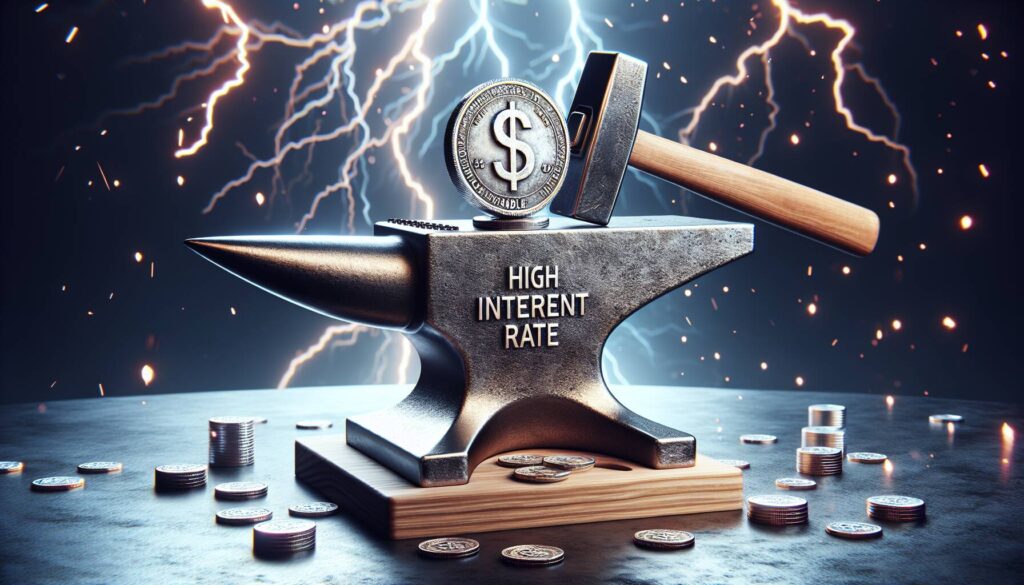In a significant development within the cryptocurrency landscape, attorneys representing the U.S. Securities and Exchange Commission (SEC) and the crypto exchange Binance have approached a federal judge, seeking to extend the pause in ongoing litigation by another two months. This request, made on Friday, underscores the ongoing dialogue between the parties, which has been described as “productive discussions.”
The SEC’s lawsuit against Binance dates back to 2023, when it accused the exchange and its U.S. affiliate, along with its former CEO Changpeng Zhao, of breaching federal securities laws. Central to the SEC’s allegations are claims that Binance operated as an unlicensed clearing agency, broker, and exchange, as well as accusations of commingling funds and manipulating trading volume.
This latest motion for a pause comes in the context of the SEC’s recent formation of a crypto task force, aimed at establishing clearer guidelines regarding the application of securities laws to digital assets. This task force was initiated following the appointment of Commissioner Mark Uyeda as acting chair of the SEC earlier this year. The ongoing discussions are said to focus on how the task force’s efforts might influence the SEC’s legal claims against Binance.
“In light of these continued discussions and the time required for the staff to seek authorization from the Commission as necessary to approve any resolution or changes to the scope of this litigation, the SEC requested that the Defendants agree to continue the current stay for an additional 60 days, and the Defendants agreed that continuing the stay is appropriate and in the interest of judicial economy,”
the filing from the attorneys stated. With both sides acknowledging the importance of clarity in this rapidly evolving digital asset environment, the coming months could play a critical role in shaping the regulatory landscape for cryptocurrencies and exchanges alike.

SEC Pauses Legal Action Against Binance
Recent developments in the legal case between the U.S. Securities and Exchange Commission (SEC) and Binance highlight important aspects of regulatory actions in the cryptocurrency industry. Here are the key points:
- SEC vs. Binance Background:
- The SEC filed a lawsuit against Binance in 2023 for allegedly violating federal securities laws.
- Accusations include operating as an unlicensed clearing agency, broker, and exchange.
- Concerns were raised about the alleged commingling of funds and manipulation of trading volume on Binance.US.
- Request for a Continued Pause:
- Attorneys for both the SEC and Binance have requested a 60-day extension of the current pause in the case.
- The pause is justified by “productive discussions” regarding the SEC’s claims and upcoming regulatory guidance.
- Creation of a Crypto Task Force:
- A new crypto task force has been established to draft clearer guidelines on how securities laws apply to digital assets.
- This task force’s work is seen as a factor impacting the SEC’s claims against Binance.
- Impact on Investors and the Crypto Market:
- Ongoing SEC actions may influence investor confidence and market stability in the cryptocurrency sector.
- Clearer regulations could shape how establishments like Binance operate, affecting user experience and security.
“The continuation of the stay is seen as in the interest of judicial economy, allowing for thorough consideration of potential resolutions.”
SEC and Binance: Navigating the Regulatory Landscape of Cryptocurrency
The ongoing legal battle between the U.S. Securities and Exchange Commission (SEC) and Binance has highlighted intense scrutiny in the cryptocurrency space, showcasing both competitive advantages and the pitfalls that come with significant regulatory oversight. Attorneys for the SEC and Binance recently requested a two-month continuance in their case, indicating a possible shift in how regulatory practices could evolve with the establishment of a new crypto task force. This scenario opens up discussions that resonate across various sectors in the cryptocurrency market.
Advantages: One notable strength in this situation is the SEC’s proactive approach to creating clearer guidelines surrounding digital assets. The new crypto task force aims to simplify the complex legal landscape in which cryptocurrency exchanges operate, potentially leveling the playing field for all crypto platforms. If successful, this initiative would bring much-needed transparency and could attract institutional investors seeking safer avenues for entry into the digital asset space. Additionally, the extended pause allows both parties to engage in meaningful discussions, which can lead to more informed regulations that benefit the entire sector.
Disadvantages: On the flip side, the continued legal entanglements pose risks, particularly for Binance, which has been under fire not only from the SEC but also from various global regulators. The SEC allegations, including claims of operating as an unlicensed clearing agency and manipulating trading volumes, could damage Binance’s reputation and deter users from engaging with the platform. Furthermore, the uncertainty around regulations might lead to market volatility, creating challenges for investors relying on clear operational guidelines. Smaller exchanges without the capacity to endure prolonged regulatory scrutiny may suffer disproportionately in this climate.
This news could benefit investors who favor clarity and regulation, as a more structured environment might reduce the fear of scams or market manipulation. However, it poses problems for those hoping for rapid growth without stringent compliance, as they could face barriers preventing swift market entries. In the broader sense, this dynamic highlights the significant balancing act between innovation in the cryptocurrency sector and the need for robust regulatory frameworks designed to protect investors and maintain market integrity.

















